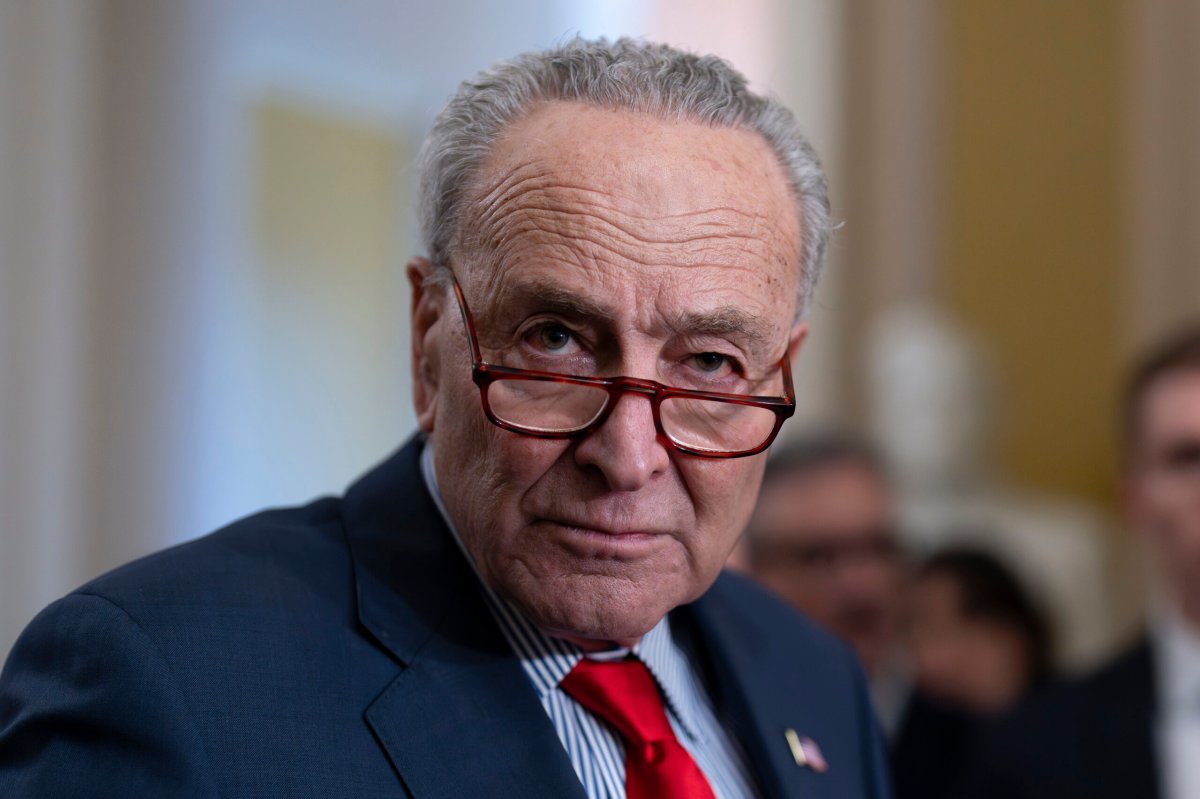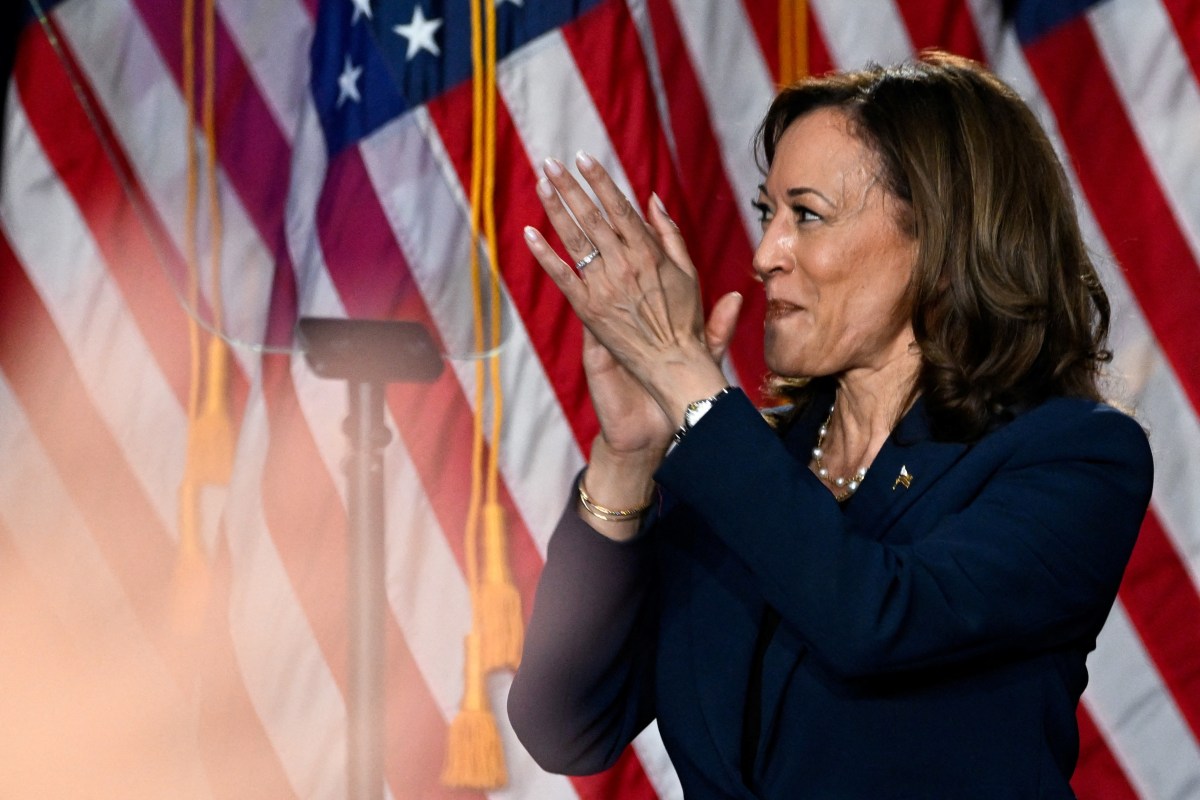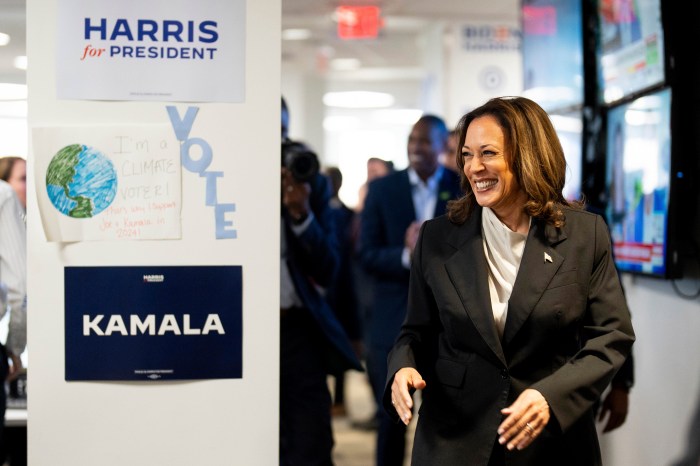Senate Majority Leader Chuck Schumer said he believes Israeli Prime Minister Benjamin Netanyahu has “lost his way” as a leader and, along with Palestinian leaders and some Israeli officials, has become an obstacle in achieving peace in Israel and Gaza.
In a March 14 speech on the Senate floor, Schumer, a lifelong Brooklynite, mourned the Israelis killed and taken hostage during Hamas’ Oct. 7 and the tens of thousands of Palestinians killed in Israel’s bombing and invasion of Gaza.
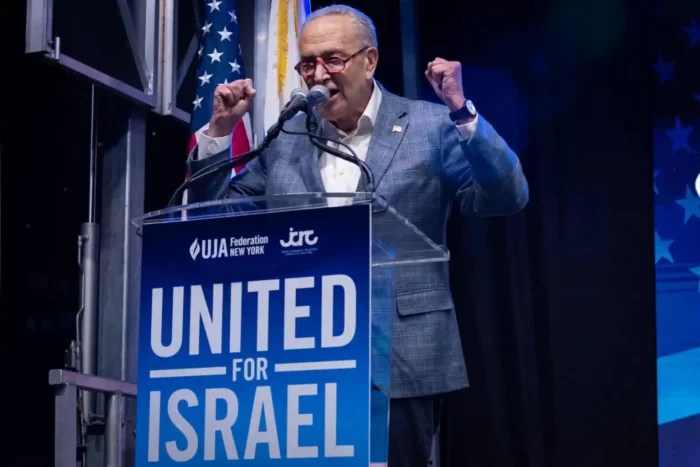
“After five months of suffering on both sides of this conflict, our thinking must turn — urgently — to how we can achieve lasting peace, and ensure prosperity and security for both the Jewish people and the Palestinian people in the Middle East,” Schumer said.
The senator recalled listening to coverage of the 1967 Six-Day War on the radio in the library of James Madison High School, “wondering if Israel would be pushed into the sea.”
“What Israel has meant to my generation, within living memory of the Holocaust, is impossible to measure,” he said. “The flowering of the Jewish people in the desert from the ashes of the Holocaust, and the fulfillment of the dream of a Jewish homeland — after nearly two thousand years of praying and waiting — represents one of the most heartfelt causes of my life.”
It was that longtime support and love for Israel that drove the senator to speak out on the most pressing threats to peace in the Middle East, Schumer said, as the war in Gaza drags on.
Hamas’ attack, which killed more than 1,200 Israelis, was “brutal beyond imagination,” he said, and reawakened long-held anxieties in Jewish communities around the world. He said he has supported the Biden administration in its negotiations to free the remaining 130 hostages in Israel, and urged Hamas to accept the most recently-proposed ceasefire deal.

“My heart also breaks at the loss of so many civilian lives in Gaza,” he said. “I am anguished that the Israeli war campaign has killed so many innocent Palestinians.”
Israel’s military offensive has killed at least 30,000 Gazan citizens, though experts say the number is likely higher. Those still living in Gaza are struggling to access food and medical care, and are at high risk of famine, according to the United Nations, as Israel has limited international aid delivery.
“We should not let the complexities of this conflict stop us from stating the plain truth: Palestinian civilians do not deserve to suffer for the sins of Hamas, and Israel has a moral obligation to do better,” Schumer said. “The United States has an obligation to do better.”

The senator said he sees four “major obstacles” to peace in the region and achieving a two-state solution: Hamas and Palestinian civilians who support the group, right-wing Israelis, Palestinian Authority president Mahmoud Abbas, and Netanyahu.
A permanent ceasefire agreement would allow Hamas to regroup and maintain power, he said — but he supports a temporary ceasefire to allow aid into Gaza and to secure the release of hostages.
“So it goes without saying that Hamas cannot have any role in a future Gaza if we are to achieve peace,” he said.
Schumer also criticized “radical right-wing Israelis in government and society,” and named Israeli finance minister Bezalel Smotrich and Ministry of National Security Itamar Ben-Gvir in particular.
Those two officials have openly called for the subjugation of Palestinians and have encouraged dangerous behavior in government and on the ground, Schumer said, and stand in the way of achieving peace.
“The third major obstacle to peace is the President of the Palestinian Authority, Mahmoud Abbas, who is beholden to his narrow political interests, to the detriment of both the West Bank and Gaza,” Schumer said.
The speaker said Abbas has “evaded the democratic process” by failing to hold elections and has allowed corruption to permeate through the PA. Additionally, he said, Abbas failed to condemn the Oct. 7 attacks for weeks, and has lost the trust of the Palestinian people.
He encouraged Abbas to step down to make way for a “new generation” of Palestinian leaders.
Finally, Schumer criticized Netanyahu, who he said he has known and respected for many years.
“However, I also believe Prime Minister Netanyahu has lost his way by allowing his political survival to take the precedence over the best interests of Israel,” he said.
In aligning himself with right-wing ideologies and attempting to undermine the judiciary, Netanyahu has “weakened Israel’s political and moral fabric,” Schumer said, and he does not believe the prime minister can be relied upon to end the war and move toward a two-state solution.
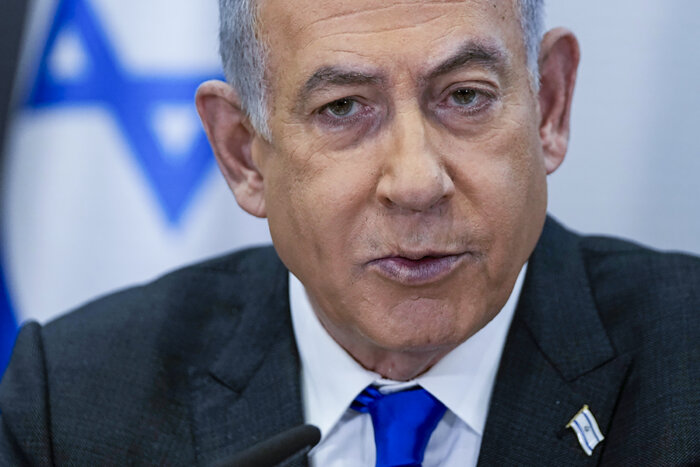
He encouraged Israel to hold a new election once the war begins to ebb.
“Now if Prime Minister Netanyahu’s current coalition remains in power after the war begins to wind down, and continues to pursue dangerous and inflammatory policies that test existing U.S. standards for assistance, then the United States will have no choice but to play a more active role in shaping Israeli policy by using our leverage to change present course,” he added.
Schumer’s speech drew immediate criticism — and praise — from his fellow elected officials and his constituents.
For his part, Netenyahu called Schumer’s speech “totally inappropriate.”
“It’s inappropriate to go to a sister democracy and try to replace the elected leadership there,” Netanyahu told CNN’s Dana Bash on “State of the Union.” “That’s something the Israeli public does on its own.”
“We’re not a banana republic,” he went on. “I think the only government that we should be working on to bring down now is the terrorist tyranny in Gaza.”
Days after the speech, during a visit to Brooklyn, Schumer told the New York Times he felt he “wouldn’t be able to look myself in the mirror” if he didn’t take a stand, and said that conversations with the rabbi of his Park Slope synagogue helped to shape his thoughts.
The senator said he wanted to show “you can still love Israel and feel strongly about Israel and totally disagree with Bibi Netanyahu and the policies of Israel.”


